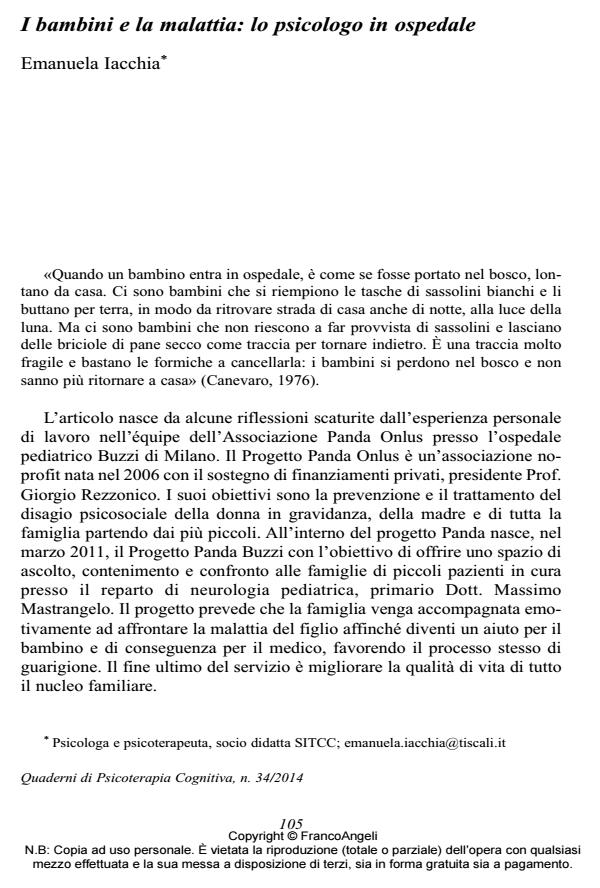Children sickness: Psychologist in Hospitals
Journal title QUADERNI DI PSICOTERAPIA COGNITIVA
Author/s Emanuela Iacchia
Publishing Year 2014 Issue 2014/34
Language Italian Pages 10 P. 105-114 File size 90 KB
DOI 10.3280/QPC2014-034007
DOI is like a bar code for intellectual property: to have more infomation
click here
Below, you can see the article first page
If you want to buy this article in PDF format, you can do it, following the instructions to buy download credits

FrancoAngeli is member of Publishers International Linking Association, Inc (PILA), a not-for-profit association which run the CrossRef service enabling links to and from online scholarly content.
When a child gets sick he suffers deeply not only in the body but emotionally and psychologically as well. Having to go through physical pain caused by certain pathologies or invasive procedures for diagnostic or therapeutic reasons can put a child and his family to the test. The implications in the quality of life of the child and his family may be very significant: experiences like fear, limitations to personal freedom, daily routines set by hospital needs, leaving the school environment and other social contexts, limits set to the relationship with significant others and to family life. All of these changes take place in a variety of ways to children and their families when they find themselves living a hospital experience. In this context, a psychologist in the pediatric ward represents an opportunity to create shared narratives between the family, the child and the hospital personnel in order to make hospital cures a better experience and accompany the child and his family along the healing process. It is a chance for the child to talk with a competent adult and share unsaid words and emotions; for the family to be accompanied emotionally through their child’s sickness and become a precious resource to the sick child and therefore to the doctor and the healing process. The ultimate goal of the psychological services is to improve the quality of life of the whole family.
Keywords: Child sickness, children in hospitals, psychologist in pediatrics, pediatric psychology
Emanuela Iacchia, I bambini e la malattia: lo psicologo in ospedale in "QUADERNI DI PSICOTERAPIA COGNITIVA" 34/2014, pp 105-114, DOI: 10.3280/QPC2014-034007